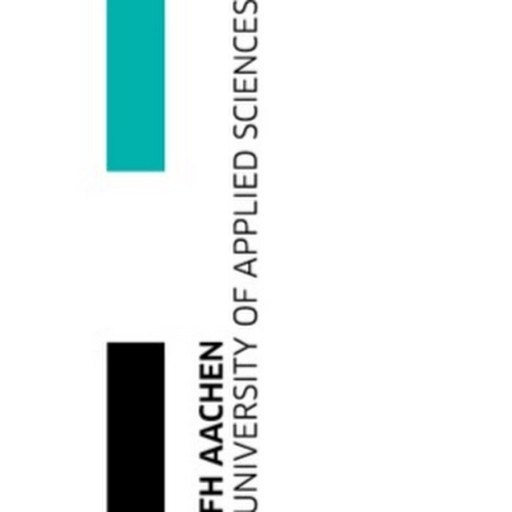Photos of university / #ouranu
The Nuclear Science program at the Australian National University offers students a comprehensive understanding of the fundamental principles and applications of nuclear science and technology. This program is designed to equip students with advanced knowledge in areas such as nuclear physics, radiation physics, nuclear engineering, and radiation safety, preparing them for diverse careers in research, industry, healthcare, and government sectors. The curriculum combines theoretical coursework with practical laboratory experiences, enabling students to develop essential skills in nuclear data analysis, radiological assessment, and nuclear instrumentation. Students will explore topics including nuclear reactions, radiation detection and measurement, nuclear medicine, nuclear energy, and waste management, gaining insights into both the scientific foundations and the societal implications of nuclear technology. The program fosters critical thinking, problem-solving abilities, and research competencies through individual and team projects, culminating in a research thesis or project that addresses current challenges in nuclear science. Opportunities for internships and collaborations with national laboratories, research institutions, and industry partners enhance the learning experience and open pathways for employment after graduation. Graduates from the Nuclear Science program will be well-prepared to contribute to advancements in nuclear research, develop innovative solutions for energy and medical applications, and participate in policy development for radiation safety and nuclear sustainability. With a focus on safety, ethical considerations, and technological innovation, this program reflects the ANU’s commitment to producing skilled professionals capable of leading in the rapidly evolving field of nuclear science.
The Nuclear Science program at the Australian National University offers a comprehensive education designed to prepare students for careers in the nuclear industry, research, and related fields. This program provides a solid foundation in the fundamental principles of nuclear physics, radiation principles, nuclear engineering, and the applications of nuclear science in medicine, energy, and security. Throughout the program, students will engage with both theoretical concepts and practical skills, including radiation detection and measurement, nuclear reactor operation, safety protocols, and energy management.
Students will have the opportunity to undertake advanced coursework in topics such as nuclear instrumentation, nuclear waste management, radiation protection, and nuclear policy. The curriculum is tailored to equip graduates with the necessary knowledge to contribute effectively to developments in nuclear technology and to address global challenges related to nuclear safety and sustainability. The program emphasizes not only technical proficiency but also critical thinking, ethical considerations, and the importance of safety standards in nuclear practices.
In addition to classroom learning, the program incorporates laboratory work, simulations, and project-based assessments to enhance practical understanding. Students may also participate in research projects under faculty supervision, gaining experience in cutting-edge nuclear research and technology development. The program encourages multidisciplinary collaboration, reflecting the diverse applications of nuclear science in medicine, energy, environment, and security sectors.
Graduates of the Nuclear Science program will be well-positioned for employment in government agencies, research institutions, nuclear power plants, medical facilities, and various industries that rely on nuclear technology. Furthermore, the program serves as a stepping stone for further postgraduate studies or specialized training in nuclear engineering, radiological sciences, and related disciplines. With a strong emphasis on safety, innovation, and responsible practices, the program aims to produce experts capable of contributing positively to the responsible development and application of nuclear science in Australia and globally.
A bachelor degree or international equivalent with a grade point average of at least 5.0/7.0 as well as at least 8 courses in the fields of Physics or Engineering. All candidates need to fulfill the English Language Requirements
The Australian National University offers a range of financing options for students enrolling in its nuclear science programs, aiming to support both domestic and international students throughout their academic journeys. Tuition fees vary depending on the specific degree, whether undergraduate or postgraduate, and are subject to annual adjustments. For international students, tuition fees tend to be higher compared to domestic students, with current estimates for postgraduate courses in nuclear science ranging from AUD 45,000 to AUD 55,000 per year. Domestic students benefit from government subsidies and student loan schemes, including HELP loans, which significantly reduce out-of-pocket expenses and spread payments over time.
The university also provides various scholarships and financial aid packages to assist with tuition costs, research expenses, and living costs. These include merit-based scholarships awarded to high-achieving students, regional scholarships for students from specific geographic backgrounds, and need-based grants to support students facing financial hardship. To qualify for most scholarships, applicants typically need to demonstrate academic excellence, relevant research interests, or financial need, depending on the scheme. Additionally, students enrolled in nuclear science programs are encouraged to seek external funding sources, such as research fellowships, government grants, and industry sponsorships, which can sometimes cover tuition or provide stipends for research work.
On-campus employment opportunities are available for students seeking part-time work to support their studies. The university’s career services provide guidance on securing suitable employment within and outside the university community. International students, in particular, should be aware of visa regulations that permit limited work hours during their studies. The Australian Government’s immigration policies also offer pathways to permanent residency after graduation in certain circumstances, which can influence students’ long-term financial planning.
Students planning to undertake internships or research placements related to nuclear science may also have access to specific funding channels, either through university grants or external industry partnerships. These opportunities often come with stipends or allowances that help offset living costs during the placement period. In sum, the ANU provides a comprehensive ecosystem of financial support options tailored to the needs of nuclear science students, aiming to make advanced education accessible and sustainable.
The Australian National University offers a comprehensive program in Nuclear Science designed to equip students with a deep understanding of the principles and applications of nuclear physics and technology. The program covers fundamental topics such as nuclear physics, radiation detection, nuclear engineering, and safety protocols, providing students with both theoretical knowledge and practical skills necessary for careers in the nuclear industry, research institutions, and government agencies. Students gain insight into the production and management of nuclear energy, medical applications of radiation, and the use of nuclear techniques in environmental and industrial settings. The curriculum incorporates coursework in advanced physics, chemistry, and mathematics, ensuring a strong scientific foundation. Practical training is emphasized through laboratory work, workshops, and industry placements, allowing students to develop hands-on experience with nuclear instrumentation and safety procedures. The program is often designed to prepare graduates for professional certification and advanced research roles, aligning with national and international standards in nuclear safety and ethics. Graduates of the program are well-positioned to contribute to the development of safe nuclear energy solutions, medical technologies, and environmental monitoring systems. The Australian National University maintains state-of-the-art laboratories and collaborates with industry partners to ensure that students have access to cutting-edge technology and real-world applications. The program may also include opportunities for research thesis work, further enhancing students’ capabilities in nuclear science and engineering. Overall, this degree aims to foster a new generation of scientists and engineers who are committed to advancing nuclear technology in ways that are safe, sustainable, and ethically responsible, supporting Australia’s growing needs for expertise in nuclear science and its applications.









